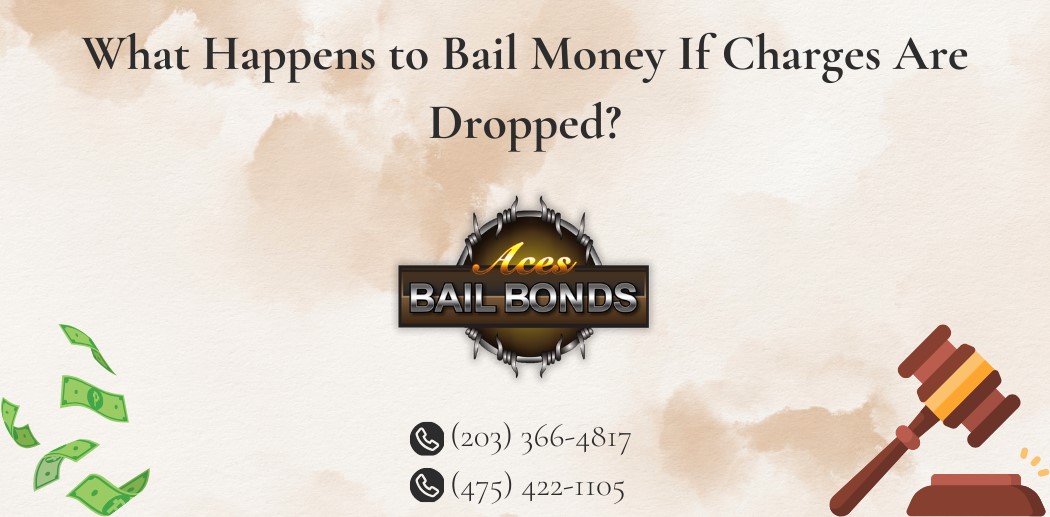
What Happens to Bail Money If Charges Are Dropped in Connecticut?
Posting bail for a loved one brings immediate relief, but if the charges are dropped, the next big question is: What happens to the bail money? Many families in Connecticut ask this when searching for bail bonds near me or working with a Bridgeport bail bondsman. Let’s break it down clearly so you know what to expect.
Understanding Bail in Connecticut
Bail is a financial guarantee to the court that a defendant will return for all scheduled hearings. If the defendant cannot pay the full bail amount, they typically work with a licensed Connecticut bail bond company.
-
Cash Bail: Paid directly to the court by the defendant or family.
-
Bail Bonds: A bail bondsman in CT posts the bail for a non-refundable fee (usually 10%).
The court holds the bail until the case is resolved.
If Charges Are Dropped, Do You Get Bail Money Back?
The short answer: Yes—but it depends on how bail was paid.
-
Cash Bail: If you paid cash directly to the court and the charges are dismissed, the court refunds the bail money (minus any court or administrative fees).
-
Bail Bond: If you used a bail bondsman, the premium fee you paid (10%) is non-refundable. That’s the cost of the service, even if charges are dropped. However, any collateral posted to secure the bond (property, vehicles, or valuables) will be released once the case is closed.
How Long Does It Take to Get Bail Money Back?
Refunds don’t happen instantly. In Connecticut, the process can take:
-
A few weeks for simpler cases
-
Several months if paperwork or processing is delayed
The timeline depends on the court’s efficiency and whether all conditions were met before dismissal.
Factors That Affect Bail Refunds
-
Type of Bail: Cash bail vs. bail bond service
-
Court Fees: Some administrative costs may be deducted
-
Defendant’s Compliance: Missing court dates can lead to forfeiture, even if charges are later dropped
How a Bail Bondsman Helps
Working with a Connecticut bail bonds agent makes the process easier. They can:
-
Guide you through posting bail correctly
-
Explain refund procedures if charges are dropped
-
Ensure collateral is released quickly
-
Keep communication clear between you, the court, and the defendant
Common Challenges
-
Paperwork Errors: Missing receipts or forms can delay refunds
-
Slow Court Processing: Bureaucracy may stretch the wait time
-
Miscommunication: Between the defendant, co-signer, and the court
➡️ Solution: Keep all documentation, follow up regularly, and use an experienced bail bond company in CT for support.
Conclusion
When charges are dropped in Connecticut, bail money is usually refunded—unless you worked with a bail bondsman, in which case the premium fee is non-refundable. Still, collateral is always released once the case ends.
The key is understanding the difference between cash bail and bail bonds. If you want clarity and peace of mind, work with a trusted Connecticut bail bond company like Aces Bail Bonds. We’re here 24/7 to guide you through the process, protect your rights, and make sure you’re never left in the dark.
📞 Call Aces Bail Bonds at (203) 366-4817 for immediate bail assistance anywhere in Connecticut.

